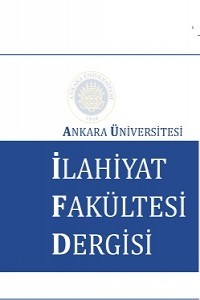Fıkıh ve Diğer Disiplinler Arasındaki İlişki
Interrelationship Between Fiqh And Other Disciplines
___
- İbn Abdi’l-Berr, Câmiu Beyani’l-İlm, (Thk.: Ebu’l-Eşbal ez-Züheyri, Riyad 1422) I/ no: 20, 22, 29.
- İbn Mace, es-Sunen, (Thk.: M. Fuad Abdulbaki, İstanbul 1992) Mukaddime 17, I/81, no: 224;
- Syed Muhammad al-Naquib al-Attas, The Concept of Education in Islam, A framework For an Islamic Philosophy of Education, (Kuala Lumpur, The Muslim Youth Movement of Malaysia (ABM, 1980).
- Kuran-ı Kerim, Al-Ra’d (13) / 26; Al-Nahl (16) / 71; Al-Tawba (9) / 112; Al-Imran (3) / 191; Al-An’am (6) / 98; Al-Nahl (16) / 44; Yusuf (12) / 1-2.
- ISSN: 1301-0522
- Yayın Aralığı: 2
- Başlangıç: 1952
- Yayıncı: ANKARA ÜNİVERSİTESİ > İLAHİYAT FAKÜLTESİ
İn‘ikâdın (Akdin Hukukî Varlık Kazanması) Mahiyeti
Kur’ân’ın Retorik Analizi: 101 ¨Êri‚a Sûresi Örnekliğinde Michel Cuypers’in Kur’ân’ı Anlama Metodu
Virtues and Vices in Akhlāq-i Nā irī
Vatikan Kütüphanesinde Tefsîr İlmine İlişkin Arapça El Yazmaları Üzerine Bir Araştırma
Kamusal Aklın Sınırları İçinde Din (John RAWLS'un Düşünceleri Bağlamında)
Kur'ân'ın Retorik Analizi: 101 ̈Êri a Sûresi Örnekliğinde Michel Cuypers'in Kur'ân'ı Anlama Metodu
